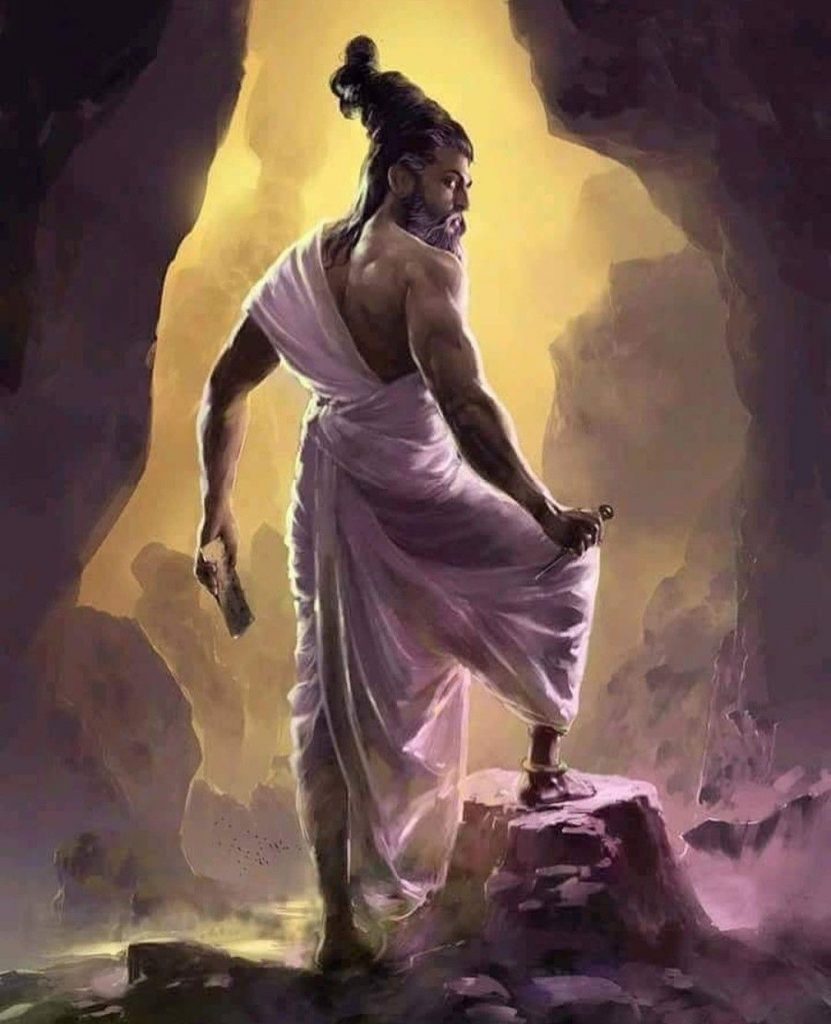
வேண்டற்க வெஃகியாம் ஆக்கம் விளைவயின்
மாண்டற் கரிதாம் பயன்.
Ventarka Veqkiyaam Aakkam Vilaivayin
Maantar Karidhaam Payan (177)
Do not seek the fortune that greed gathers, for its fruit is bitter on the day of enjoyment.
परद्रव्यापहारेण लब्धं वस्तु परित्यजेत् ।
फलप्रदानवेलायां न तच्छ्रेय: प्रदास्यति ॥ (१७७)
चाहो मत संपत्ति को, लालच से उत्पन्न ।
उसका फल होता नहीं कभी सुगुण-संपन्न ॥ (१७७)
ಲೋಭದಿಂದ ದಕ್ಕುವ ಸಂಪತ್ತನ್ನು ಬಯಸದಿರು. ಬೆಳೆಯುವಾಗ ಆದರ ಫಲ (ಪರಿಣಾಮ) ಒಳ್ಳೆಯದಾಗುವುದಿಲ್ಲ. (೧೭೭)
അത്യാശയാൽ ലഭിക്കുന്ന ദ്രവ്യങ്ങളുപയോഗത്തിൽ നന്മ നൽകാത്തതോർക്കുമ്പോളാശകൈവിടലുത്തമം (൱൭൰൭)
Begehre nie den Gewinn des Gelüstens – die erlangten Früchte sind niemals gut.
இறலீனும் எண்ணாது வெஃகின் விறல்ஈனும்
வேண்டாமை என்னுஞ் செருக்கு.
Iraleenum Ennaadhu Veqkin Viraleenum
Ventaamai Ennunj Cherukku (180)
To covet (the wealth of another) regardless of consequences will bring destruction. There is a mindful pride that, in refusing to covet, is triumphant.
परिणाममनालोच्य परलुब्धो विनश्यति ।
अलुब्धो यस्तु वर्तेत राजते स जयी भुवि ॥ (१८०)
अविचारी के लोभ से, होगा उसका अन्त ।
लोभ- हीनता- विभव से, होगी विजय अनन्त ॥ (१८०)
ತನ್ನ ಉನ್ನತಿಯನ್ನು ಎಣಿಸಿದೆ ಹೆರರ ಸಂಪತ್ತನ್ನು ಲೋಭಿಸಿದರೆ ಅದು ಅಳಿವನ್ನು ತರುತ್ತದೆ; ಹಾಗೆ ಲೋಭಿಸದ ಹಿರಿಮೆಯ ಬಾಳು ಜಯವನ್ನು ತರುತ್ತದೆ. (೧೮೦)
ഭാവിദോഷം ഗണിക്കാതെ പൊരുളാശവിനാശമാം അന്യപൊരുളാശിക്കാതെയിരുന്നാൽ വിജയം ഫലം (൱൮൰)
Wen gelüstet, ohne die Folgen zu bedenken, geht zugrunde – seigreicher Stolz erfüllt, wen nicht gelüstet.
Covet means a yearning to possess something that belongs to someone else. It is a little different from greed, that is a feeling of wanting to possess everything. Covet specifically refers to the property of someone else – something that we see and feel attracted to, and want to get, often at any cost.
While the meaning is quite logical and doesn’t need much explanation, I would like to briefly speak about a different perspective. After all, try explaining this to a kid and his first question back at you would be – why? and you would reply – because it’s bad. “But why is it bad?”…hmmm here is where you run out of what to say, and end up a) scolding him for asking so many questions, or b) tell him that God said it this way and that’s the way it has to be.
But think about it…did you understand this yourself? Have you wondered why this is “bad”, or why something should “not be done”?
Here is a way of looking at it.
ईशावास्यमिदं सर्वं यत्किञ्च जगत्यां जगत् ।
तेन त्यक्तेन भुञ्जीथा मा गृधः कस्यस्विद्धनम् ॥
īśāvāsyamidaṃ sarvaṃ yatkiñca jagatyāṃ jagat |
tena tyaktena bhuñjīthā mā gṛdhaḥ kasyasviddhanam ||
Isha Upanishad
The essence of this opening verse from the Isha Upanishad is – Whatever exists in this world, originates from one source. And so, do not covet, for whose is wealth?
The Vedanta speak of this issue of perception, that is the root of all our problems. We think of ourselves to be different from the rest, and this gives rise to the concept of “mine and yours”. While we ordinary human beings may be far away from truly considering everyone and everything as the part of one commonality, the fact of the matter is that we are all part of one common source. And I am not speaking philosophically, but biologically.
As far as our genes are concerned, we are virtually identical to one another – 99.99%. Only 0.01% of our genes are different.We are a swarm (around 50 trillion in size) of cells that come together to form each of us. Every day, millions of cells die and millions are born – all this happening within us. When we die, our cell components become part of the panchabhutas – fire, air, water, space and earth. Some of these cell components come together in various combinations and this is how the cycle of life continues.
When I am changing (at a cellular level) literally every minute, who am I? And who are you?
Your body is not the same as it was a minute ago, and your mind is also not the same – we keep adding new experiences that form new memories and affect our thinking.
So this “I” and “U” concept, while helping us lead a practical and social life, ends up causing negativity as well, in the form of competition, clashing of ideas, greed and envy…realising this simple fact of life – that we are all part of the same consciousness, made from the same stuff, and ever-changing – may help alleviate this negativity to a large extent.
What is mine and what is yours, is only rented for some time…you may rent it longer than me, but once you are gone, the ownership changes automatically.
And so, whose is it? And if we are all one, then what is the use of coveting it?
Food for thought…
